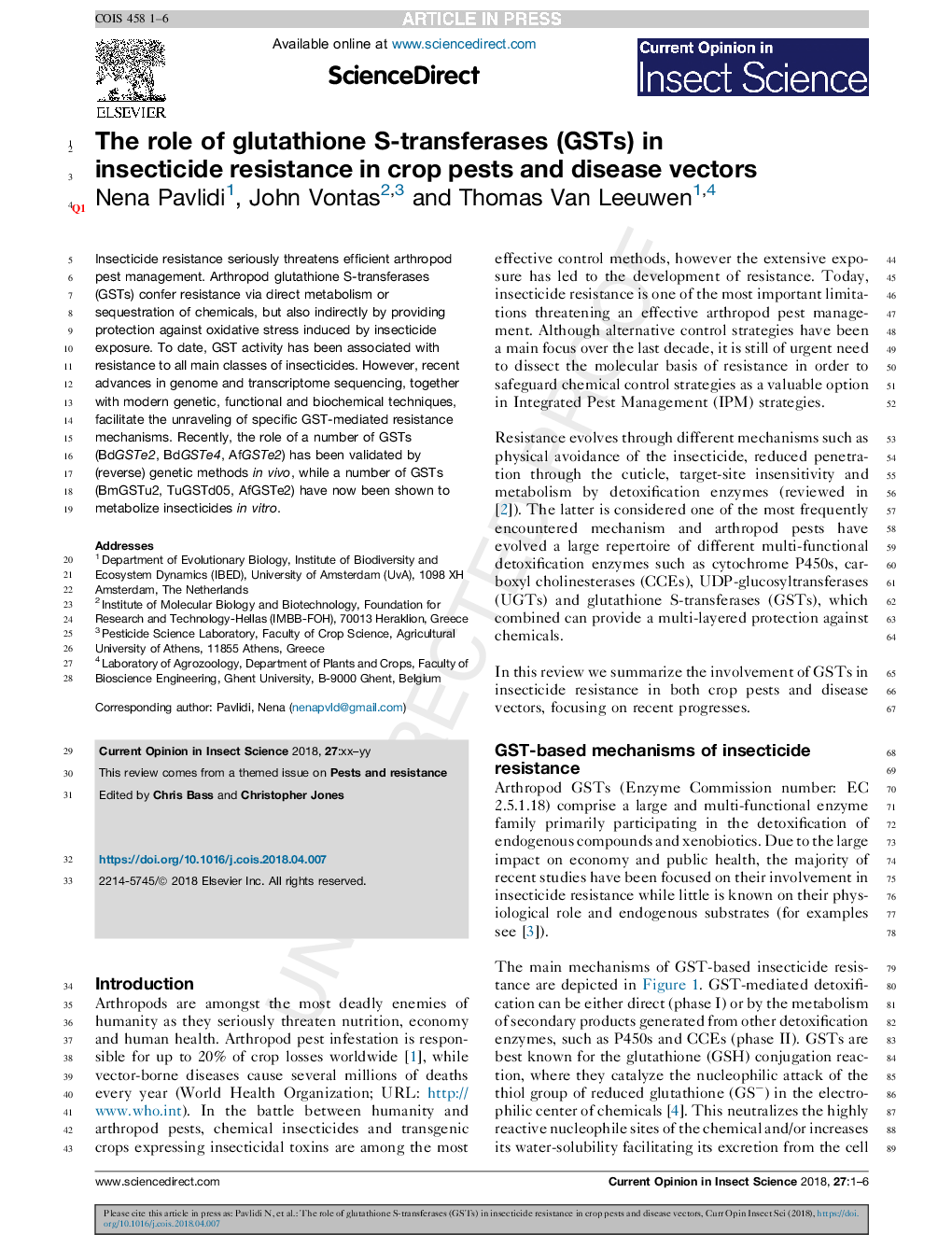| Article ID | Journal | Published Year | Pages | File Type |
|---|---|---|---|---|
| 8878447 | Current Opinion in Insect Science | 2018 | 6 Pages |
Abstract
Insecticide resistance seriously threatens efficient arthropod pest management. Arthropod glutathione S-transferases (GSTs) confer resistance via direct metabolism or sequestration of chemicals, but also indirectly by providing protection against oxidative stress induced by insecticide exposure. To date, GST activity has been associated with resistance to all main classes of insecticides. However, recent advances in genome and transcriptome sequencing, together with modern genetic, functional and biochemical techniques, facilitate the unraveling of specific GST-mediated resistance mechanisms. Recently, the role of a number of GSTs (BdGSTe2, BdGSTe4, AfGSTe2) has been validated by (reverse) genetic methods in vivo, while a number of GSTs (BmGSTu2, TuGSTd05, AfGSTe2) have now been shown to metabolize insecticides in vitro.
Related Topics
Life Sciences
Agricultural and Biological Sciences
Agronomy and Crop Science
Authors
Nena Pavlidi, John Vontas, Thomas Van Leeuwen,
